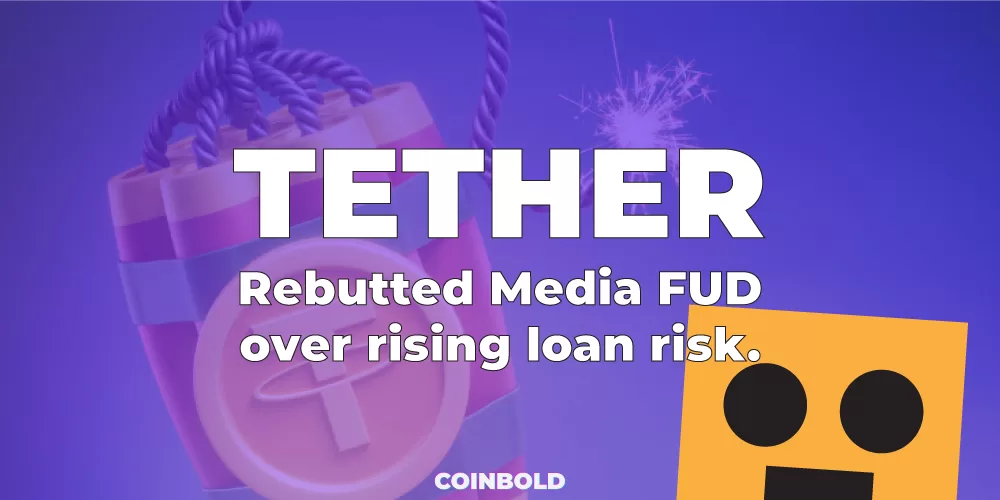After backlash from a major media house, Tether hit back at media FUD regarding rising loan risk with a blog post “WSJ & CO: The Hypocrisy of Mainstream Media, Asleep at the Wheel of Information.”
The Wall Street Journal published a report aimed at Tether in which it claimed that the company has “increasingly been lending its own coin to customers rather than selling them for hard currency upfront.” This caused the problem to come to light and bring attention to the issue.
In addition to this, it was underlined that these loans increase the risk that the firm does not have adequate liquid assets to fulfill redemptions in the event of a crisis. Tether provided a detailed response to the criticism, in which it said that the mainstream media has failed to accurately anticipate the downfall of major cryptocurrency platforms yet has continued to criticize Tether.
The Wall Street Journal (WSJ) provided support for its assertion by stating that it has investigated Tether’s financial filings and found proof of the loans. According to the most recent report, as of September 30 they had reached $6.1 billion, which represented 9% of the total assets held by the corporation.
Tether has not made any statements denying the existence of these genuine secured loans. The Wall Street Journal, on the other hand, is unmoved in its assertion that Tether’s loans of USDT were priced in USDT and that the corporation was thus vulnerable to a fall in the value of the stablecoin.
Tether argued that the WSJ is missing the point entirely and confusing the USDT itself with the collateral that underpins it. Additionally, it was said that Tether’s secured loans are substantially over-collateralized and even backed up by Tether’s extra equity in the event that it was required.
In addition, the company mentioned that the equity is expanding at a rapid rate and that approximately 82.45% of total Tether reserves are held in “U.S. Treasuries and other cash equivalents whose yields are at multi-year highs.” It was revealed that Tether always needs an extraordinarily large overcollateralization by assets that are exceedingly liquid.
Tether mocked the media outlet on its blog by claiming that it is profitable and would continue to function normally even under the most adverse of circumstances. Tether is not playing with the money of its customers but rather has been and will continue to precisely manage its reserves and does not use fractional reserve.
Tether has already engaged in combative behavior against the media, so this is not the first time he has done so. Tether published an article in which it accused Bloomberg of fishing for headlines by using outdated material.
Compiled by Coinbold


